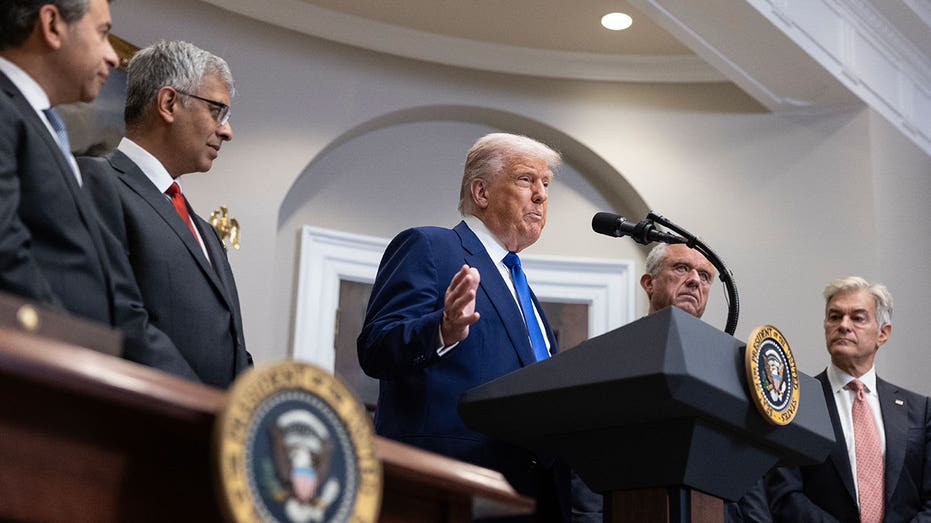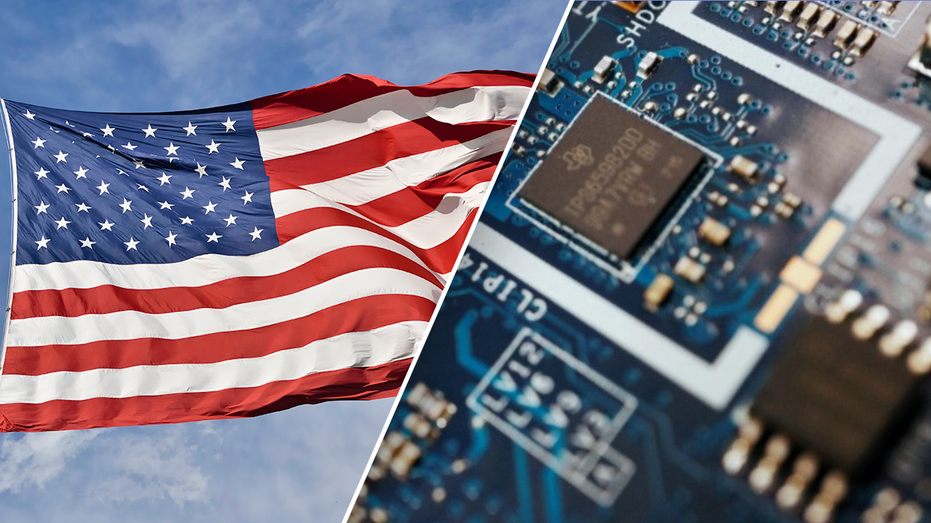While congressional Republicans wrestled with President Donald Trump’s deal with a major chip manufacturer, Republican leadership in the House and Senate have remained quiet.
The White House championed a recent deal to acquire a stake in the American chipmaker Intel, arguing that it was a move to bolster the country’s mission to break free of imports of crucial components in a variety of technologies.
But Republicans in the House and Senate struggled with the news, particularly over the Trump administration’s involvement, and ownership stake, in a private company.
REPUBLICANS CLASH OVER TRUMP’S INTEL STAKE, WITH SOME CALLING IT ‘A STEP TOWARD SOCIALISM’
As lawmakers in their ranks grappled with the deal, and potential future propositions, both House Speaker Mike Johnson, R-La., and Senate Majority Leader John Thune, R-S.D., have remained quiet on the deal, which saw the U.S. take a 10% stake in the chipmaker.
Both Thune and Johnson’s offices did not respond to requests for comment by Fox News Digital. Lawmakers are away on their annual August recess, and top Republicans normally use this period to campaign and raise money outside of Washington.
Congressional leaders also had no decision-making role in the Trump administration’s acquisition.
While the top Republicans stayed hush on the deal, others in the GOP warned that the country’s stake in Intel was a step toward socialism, eventually culminating in communism.
“The U.S. federal government should not be buying companies,” said Rep. Don Bacon, R-Neb.
INTEL RIVAL SKYWATER PITCHES ITSELF AS ALL-AMERICAN FIRM AS TRUMP MULLS MORE EQUITY DEALS

Sen. Rand Paul, R-Ky., called the move a “terrible idea” and suggested that the government owning a stake in Intel is “a step toward socialism.”
At the core of the deal is the CHIPS and Science Act, a bipartisan effort turned into law during the Biden administration meant to bolster American manufacturing of semiconductors in the wake of the COVID-19 pandemic, where holes in the supply chain, particularly when it came to chips that were crucial in the production of cars, phones and weapons, were laid bare.
Sen. Todd Young, R-Ind., argued that the CHIPS Act was never meant to be used in such a way.
“There’s concerns about precedent here, and also concerns about what is allowed under the law,” Young said.
Under the original bill, which passed with just 24 Republicans in the House and 17 Senate Republicans voting for it, Intel was slated to receive nearly $11 billion in funding to bolster chipmaking in the U.S.
TRUMP BLASTED FOR ‘STEEP CONCESSIONS TO BEIJING’ AFTER CHIP DEAL, CANCELED TAIWANESE VISIT

Neither Johnson nor Thune voted for the bill. At the time, Johnson was still a backbench lawmaker a little over a year away from his ascendancy to the speakership after former House Speaker Kevin McCarthy was ousted, while Thune served as the Senate minority whip under Democratic control of the Senate.
The new deal brokered by the White House, announced last week, would see the U.S. invest $8.9 billion in unpaid grants from the CHIPS and Science Act for a 10% stake in the company.
And as lawmakers gear up to return to Washington to tackle government funding, a possible rule change in the Senate to break through Senate Democrats’ blockage of Trump’s nominees and other pressing matters left to hang around until September, the president has signaled that he wants to do more deals akin to the one with Intel.
“I PAID ZERO FOR INTEL, IT IS WORTH APPROXIMATELY 11 BILLION DOLLARS,” he said on Truth Social. “All goes to the USA. Why are ‘stupid’ people unhappy with that? I will make deals like that for our Country all day long.”
Read the full article here










